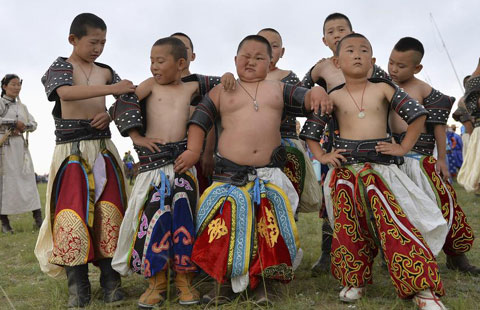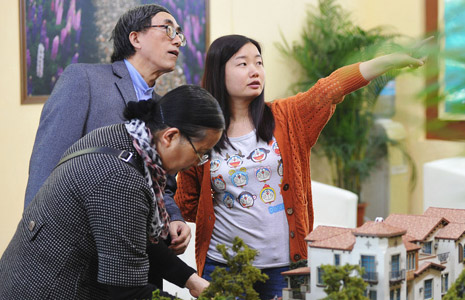Land issue is central to urbanization
Updated: 2014-08-08 17:21
(chinadaily.com.cn)
|
|||||||||||
Farmers’ collective ownership and property rights over land must be protected in China’s urbanization, says an article of Southern Metropolis Daily.
Excerpts:
The State Council issued a guideline on the reform of hukou, or household registration which stated that China is to unify its agricultural and urban hukou, to eradicate the discriminative system for farmers. But some farmers, especially those from villages close to suburban areas, are reluctant to bid farewell to their agricultural hukou, because they worry the government will acquire their land if they are recognized as urban residents.
On the other hand, the government has increased its subsidy for farmers in recent years with a number of preferential policies. High housing prices, costly education, unstable jobs and difficulty adapting to city life explain why some farmers are not willing to enter the city, even if welfare is higher than in villages.
Land issues are central to the dilemma. Under the current legal framework, farmers enjoy management rights over contracted land that is collectively owned by all residents in a village, and farmers have the use of their house and can enjoy returns from collectively owned house sites with other villagers.
The central government’s guideline clarifies that the farmers’ collective ownership and property rights over their land must be respected according to law, and no authority should force farmers to give up their land in exchange for a city hukou. The government should compensate farmers fairly if they give up their land of their own free will.
Land issues must be solved according to law, on a voluntary basis and with compensation. These are the principles settled by the central authority for the issue.
If implemented, the farmers can keep their land and obtain a city hukou. The farmers are concerned the principles will not be implemented in practice and that the authorities of various levels will not follow principles.
Filling the gap between basic welfare in the countryside and the cities is not difficult if a basic welfare system is established in rural areas.
City governments should also prepare for the rise in expenses of the new 100 million citizens to be turned from migrant workers in the next five years, according to China’s urbanization plan.
Related Stories
Vision for hukou reform 2014-07-31 07:33
Reforming hukou will unify rights of migrants 2014-07-31 02:10
Officer killed in NE China land fracas 2014-08-01 21:33
Chilling house market cools land sales 2014-07-17 09:41
Today's Top News
Russia bans West food, Brazil benefits
Russia to ban food imports from EU, US
Obama authorizes airstrikes in Iraq
Snowden extends Russian stay
Scale of Ebola crisis unprecedented
Putin bans agricultural imports from West
UK names 'China hand' as new envoy
China film looks to global audience
Hot Topics
Lunar probe , China growth forecasts, Emission rules get tougher, China seen through 'colored lens', International board,
Editor's Picks

|

|

|

|

|

|





